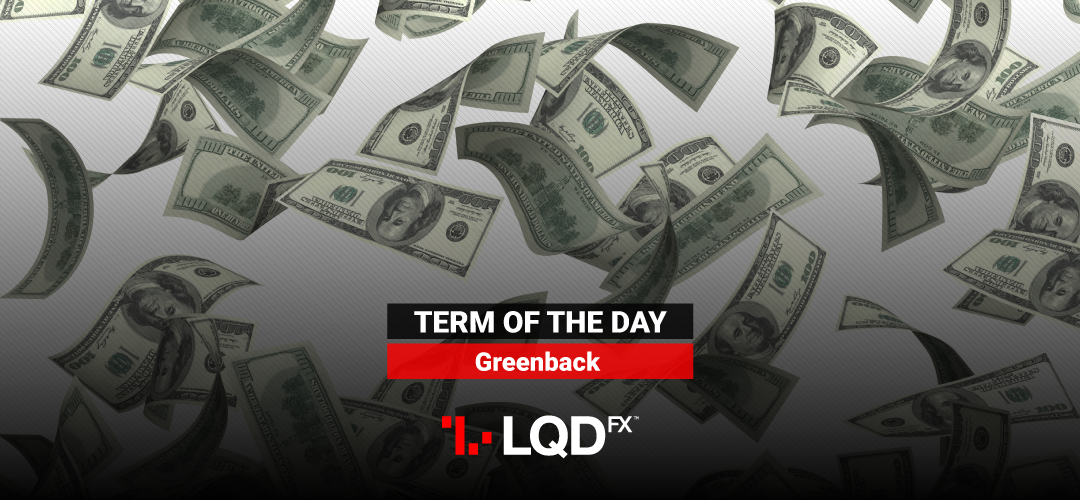Greenback is the slang term for U.S. paper dollars. Greenbacks got their name from their colour. Although today we widely use the term to refer to US Dollar, in the mid-1800s, “greenback” was a negative term.
US Dollar’s modern history began in 1913 with the creation of Federal Reserve. The US central bank was authorized to enter into circulation a new type of US paper currency. Until that time US currency circulated mainly in one of the following types:
- gold and silver coins,
- gold and silver certificates,
- commercial bank notes issued by private banks, and, finally
- greenbacks: fiat paper currency, printed in green on the back, not backed by gold or silver, and declared legal by congress to fund the US Civil War.
Today, greenback is an anecdotal term that foreign exchange traders use for the domestic currency of the world’s largest economy, the United States. Greenback is greatly influenced by FED and announcements about interest rate policy. It is also one of the major currencies and Forex market traders usually trade US dollar against the Euro, the Japanese Yen and the British pound. If not the most significant, it is one of the most significant currencies, representing more than half of the currency trading.
Even though today is one of the strongest currencies, this was not always the case. Before WWII, pound was the queen. Moreover, between 2003 and 2008 the value of the U.S. dollar significantly dropped compared to most of the major currencies. The depreciation accelerated during 2007 and 2008, impacting both domestic and international investments.
Do you know the nicknames of major currencies/currency pairs other than Greenback?
GBP/USD is “the cable”. Traders refer to GBP as “Sterling”, “pound” or “quid”.The following nicknames are common: “Swissy” for CHF or “Euro-Swissy” for EUR/CHF, “Fiber” for EUR/USD. Also, “Loonie” for CAD, Aussie for AUD and AUD/USD, “Yen” or “Ninja” for USD/JPY, “Yuppy” for EUR/JPY, and “Kiwi” for the New Zealand Dollar (NZD). Nicknames vary between the trading centres in New York, London, and Tokyo.
Sources: Investopedia, Wikipedia
